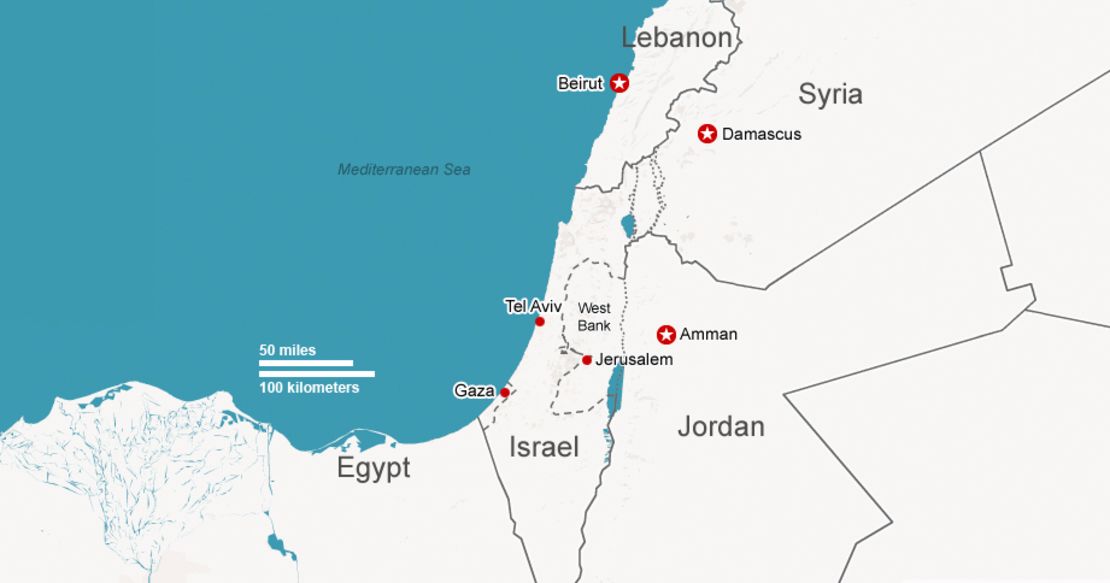Editor’s Note: Marco Vicenzino writes about geopolitical risk analysis for global media outlets and is director of the Global Strategy Project, a geopolitical research and analysis organization based in Washington.
Story highlights
Marco Vicenzino says Gaza conflict marks a clear wake-up call to both sides
Vicenzino: The regional status quo is simply unsustainable in the long term
Vicenzino: Best outcome for Israeli Prime Minister Netanyahu was cease-fire
Vicenzino: Egypt's Morsy must prove able to restrain Hamas when necessary
The brief but bloody Gaza conflict between Israel and Hamas marks a clear wake-up call to both sides, and their supporters, on the indispensable need to start serious talks beyond the new cease-fire.
This development must be seized upon to convert the recent crisis into an opportunity after years of inaction. A desperate injection of diplomatic energy is required. The alternative is renouncing responsibility and initiative to continuous unpredictability, and becoming its hostage. In an increasingly volatile region experiencing historic transformation and shifting alliances, the potential for simultaneous conflict on multiple fronts remains real.
Are you affected by the conflict? Share photos and video, but stay safe.
Diminishing the threat, and its catastrophic consequences, through a credible process is critical to regional stability and international order.

The cease-fire alone simply marks the end of another chapter in the decades-old vicious cycle of violence between Israelis and Palestinians. Ideally, a next phase of negotiations should focus on a permanent end of hostilities. Although its duration would be unknown, it is best to commence sooner rather than later.

The regional status quo is simply unsustainable in the long-term. Time is of the essence. A continuing game of brinksmanship risks miscalculation and another descent into the abyss at any given moment. After all, there is no military solution to the Israeli-Palestinian conundrum.
Tallying the results of the recent conflict leaves adequate room for each side to claim points and some form of victory. However, neither could benefit from further escalation. For Israel, its Iron Dome anti-missile defense system proved increasingly effective. Its surgical strikes in Gaza demonstrated greater accuracy.
Although no match for Israel’s superior firepower, Hamas’s rockets reached alarmingly deeper into Israeli territory. This provided a psychological boost to morale despite relentless Israeli attacks and considerable physical damage.
Post-conflict reconstruction is nothing new: Hamas will emerge politically strengthened at home and abroad and it will continue to overshadow Fatah, which controls the West Bank. The credibility of Palestinian President Mahmoud Abbas is further undermined, even as he actively pursues non-member observer status for Palestinians at the United Nations.
The presence of intermediaries in Cairo to negotiate the cease-fire reaffirms the centrality of Egypt’s role to any peace process. Clearly, without Egypt, no solutions are possible. For now, the cease-fire also marks the most important foreign policy test and achievement yet for new Egyptian President Mohamed Morsy.
Since Hosni Mubarak’s ouster and its departure from Syria, Hamas remains increasingly dependent upon Egypt ideologically, politically, diplomatically and economically. Throughout the week-long conflict, Morsy skilfully influenced Hamas. Furthermore, sending Egypt’s prime minister to Gaza at the very start of the crisis proved symbolically important, although practically ineffective.
Through the cease-fire, Morsy has raised his standing at home and abroad. A process of establishing himself as a reliable regional broker has begun. However, responsible continuity and critical follow up is required.
Statements alone will not suffice. In concrete terms, he must prove able to restrain Hamas when necessary and guide it on a constructive path toward peace. Sustained diplomatic support from the Arab League and Turkey, and particularly financial assistance from Qatar, will further strengthen Morsy’s hand.
The increased leverage from positive crisis management must be used effectively by Morsy at home. While he is developing a pragmatic accommodation with the military, serious concerns still linger for political opponents and minorities of his broader agenda. Morsy must reach out beyond his political base and take a more inclusive approach.
The crisis also underscored the need to strike a balance between public expectations, particularly in Islamist ranks, and what is realistically achievable in the diplomatic realm. While in opposition during the Mubarak era, Islamists scored easy points with public opinion when condemning government inaction during Israeli-Palestinian violence.
Now the reality of power demands greater rhetorical responsibility and restraint from Islamists in government.
The current cease-fire also offers President Morsy the opportunity for renewed, and closer, engagement with the U.S., particularly after President Barack Obama’s election victory and Morsy’s initial blunders following the killing of America’s ambassador to Libya.
With the U.S. election over, the burden is also on President Obama to assume a more proactive role in fostering a productive peace process, in collaboration with allies and regional powers. Obama’s first attempt immediately following his 2009 inauguration ended in humiliation at the hands of Israeli Prime Minister Benjamin Netanyahu. Although once bitten, Obama cannot be twice shy. American national interests and international order cannot afford it.
With a drastically transforming Middle East and in search for a foreign policy legacy, Obama must seize the historic opportunity for a new start. There is no room for reluctance or excessive caution. Troubles with Iran and Syria cannot be obstacles to a Palestinian state.
Furthermore, the growing perception of exclusive American interest in east Asia and neglect and indifference to the Middle East is very destabilizing.
It creates an increasingly dangerous power vacuum and encourages nefarious forces to fill it. Obama’s penchant for re-start buttons should not lose focus on the Middle East, and particularly Egypt.
Approximately two months away from election, the cease-fire was the best possible outcome for Israel’s Netanyahu. He emerges politically stronger and brandishes his leadership credentials as the guarantor of Israel’s security. Averting a ground invasion was crucial. He exits the crisis with ample support in the West and avoided greater international isolation.
However, the regional game has dramatically changed for all players. Netanyahu no longer enjoys Mubarak’s passive acquiescence in Egypt or a reliably predictable enemy like President Bashar al-Assad in Syria. New realities require new approaches. Failure to adapt will have considerable consequences for Netanyahu and Israel.
Ultimately, a resolution to the Israeli-Palestinian issue is not a panacea to the ills plaguing the broader Middle East. However, it would provide indispensable momentum and unleash new dynamics in confronting other outstanding grievances around the region and beyond.
The opinions expressed in this commentary are solely those of Marco Vicenzino.







